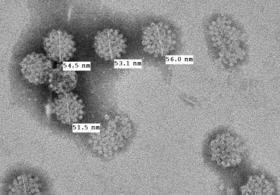
A research team at the University of Pittsburgh has discovered a possible treatment for Merkel cell carcinoma (MCC), just four years after determing the cause of the rare skin cancer.
The husband-and-wife team of Dr. Patrick Moore and Dr. Yuan Chang has found that the experimental drug YM155 is an “extremely potent killer” of MCC tumors in laboratory mice.
Moore said the drug was not toxic to the rodents, so human trials are expected to begin within six months.
“I would expect, in the next four years, that we will have possibly even vaccines that can be used to treat the cancer itself. We will have immunotherapies,” said Moore. “All of those things are scientifically possible. Then we get into the realm of the more difficult subject: are they economically possible?”
The microbiology professor said this is one of a few examples in which researchers are “at the 95 yard line” in terms of solving a specific cancer.
“Even at that stage, for instance in Pennsylvania, our universities are facing a $200 million budget cut. Our funding for cancer research is being taken and put into the general settlement, and all of that says that we’re not actually going to make it that extra five yards,” said Moore.
Merkel cell carcinoma begins with a virus that is found on the skin of most adult humans, said Moore. He said Merkel cell polyomavirus (MCV) is usually a harmless part of the viral skin flora. However, MCV can cause skin cancer if it undergoes a specific pair of mutations thought to be influenced by long-term sun exposure. The virus then commandeers the human cell with mutated DNA, builds up the cell’s natural defenses, and multiplies.
The experimental drug YM155 prevents MCV from fortifying and multiplying the host cells, and effectively quashes tumor growth in mice. Moore said the speed of this discovery shows the value of genomics.
“What we’ve done over the last four years is gone from no cause, no diagnostics, [and] a very unclear origin for this cancer to knowing precisely, at a molecular level, what is causing this cancer … And now we can take a single molecule, a small compound, and give it to these cells and it will target that precise pathway,” said Moore.
Merkel cell carcinoma affects roughly one person in every 227,000 in the United States, according to the National Cancer Institute. The NCI said it mostly affects the elderly with painless lumps on the skin, particularly on the face and limbs. Dr. Moore said there are about 1,500 new cases of the disease every year, and about half of all MCC patients die of the cancer.





